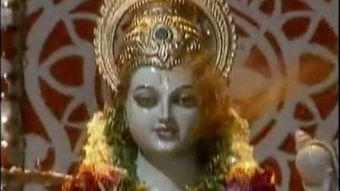
Om Jai Lakshmi: A Comprehensive Guide
Om Jai Lakshmi is a phrase that holds immense significance in Hinduism, representing the worship of the goddess Lakshmi, who is revered as the deity of wealth, prosperity, and beauty. This article delves into the various dimensions of Om Jai Lakshmi, exploring its origins, rituals, cultural significance, and spiritual implications.
Origins and Significance

The phrase “Om Jai Lakshmi” is a combination of three words: “Om,” “Jai,” and “Lakshmi.” “Om” is a sacred sound that is considered to be the universal mantra, representing the infinite and the divine. “Jai” is an expression of joy and victory, while “Lakshmi” is the name of the goddess of wealth and prosperity.
According to Hindu mythology, Lakshmi is the wife of Lord Vishnu, the preserver of the universe. She is often depicted as a beautiful woman with four arms, each holding a different object: a lotus, a bowl of rice, a book, and a rosary. These symbols represent wealth, fertility, knowledge, and devotion, respectively.
Rituals and Devotions

Om Jai Lakshmi is often chanted during rituals and devotions dedicated to the goddess Lakshmi. Here are some common practices:
-
Mantra Chanting: The phrase “Om Jai Lakshmi” is chanted repeatedly during puja (worship) ceremonies. It is believed that the sound vibrations of the mantra have the power to invoke the presence of the goddess and bring prosperity to the devotee.
-
Worship of Lakshmi: Devotees often create an altar with images of Lakshmi and offer her prayers, flowers, incense, and sweets. They may also perform aarti, a ritual involving the waving of lamps and the recitation of prayers.
-
Lakshmi Puja: This is a special puja performed during Diwali, the festival of lights. Devotees invite Lakshmi into their homes by lighting lamps, offering prayers, and performing rituals to attract wealth and prosperity.
Cultural Significance

Om Jai Lakshmi holds great cultural significance in Hindu society. It is often associated with the following aspects:
-
Weddings: Lakshmi is considered the goddess of marriage, and her blessings are sought during wedding ceremonies. The phrase “Om Jai Lakshmi” is often chanted during the wedding rituals to ensure a prosperous and happy marriage.
-
Business and Wealth: Om Jai Lakshmi is often invoked by entrepreneurs and business owners to seek divine guidance and prosperity in their ventures. It is believed that the goddess’s blessings can bring success and financial stability.
-
Education and Knowledge: Lakshmi is also associated with knowledge and wisdom. Students often seek her blessings before important exams and academic pursuits.
Spiritual Implications
Om Jai Lakshmi has profound spiritual implications in Hinduism. It represents the importance of wealth and prosperity in the context of spiritual growth. Here are some key points:
-
Material Wealth: Hinduism teaches that wealth is a means to an end, not an end in itself. Om Jai Lakshmi reminds us to use our wealth for the betterment of society and to support our spiritual journey.
-
Balance: The phrase emphasizes the need for balance in life. It encourages us to pursue wealth and prosperity while maintaining a harmonious relationship with our spiritual beliefs and values.
-
Devotion: Om Jai Lakshmi is a reminder of the importance of devotion and faith in the divine. It encourages us to seek the blessings of the goddess and to live a life of gratitude and service.
Conclusion
Om Jai Lakshmi is a powerful phrase that encapsulates the worship of the goddess Lakshmi and her role in Hinduism. From its origins and rituals to its cultural and spiritual significance, Om Jai Lakshmi holds a special place in the hearts of millions of devotees. By understanding and embracing the essence of this phrase, one can experience the divine presence of Lakshmi and find balance, prosperity, and spiritual growth in their lives.





